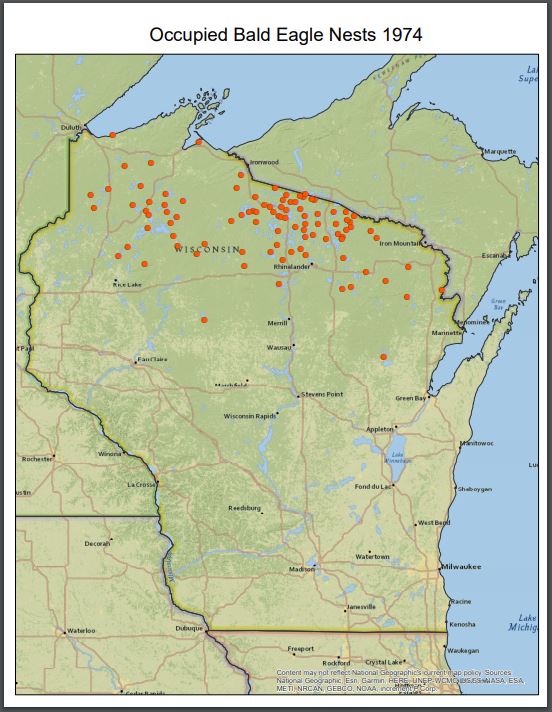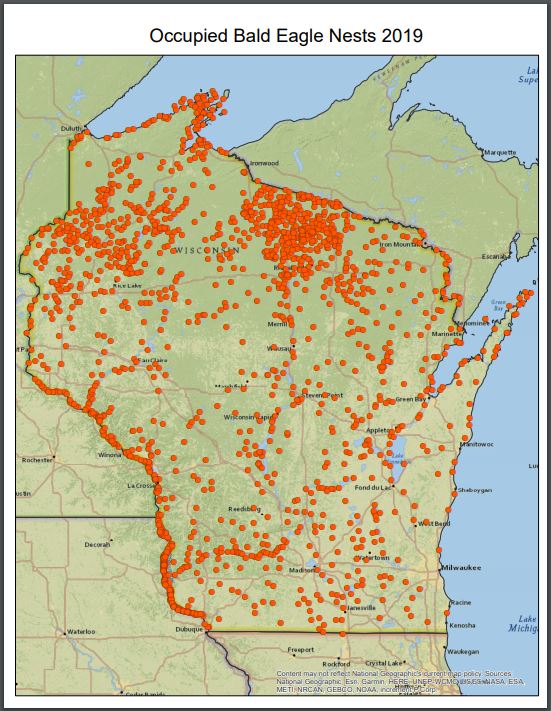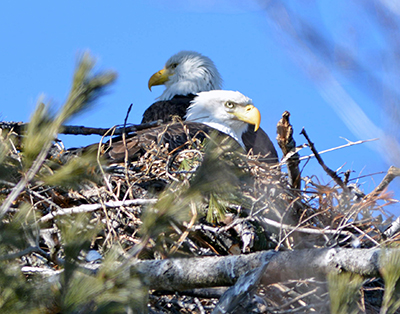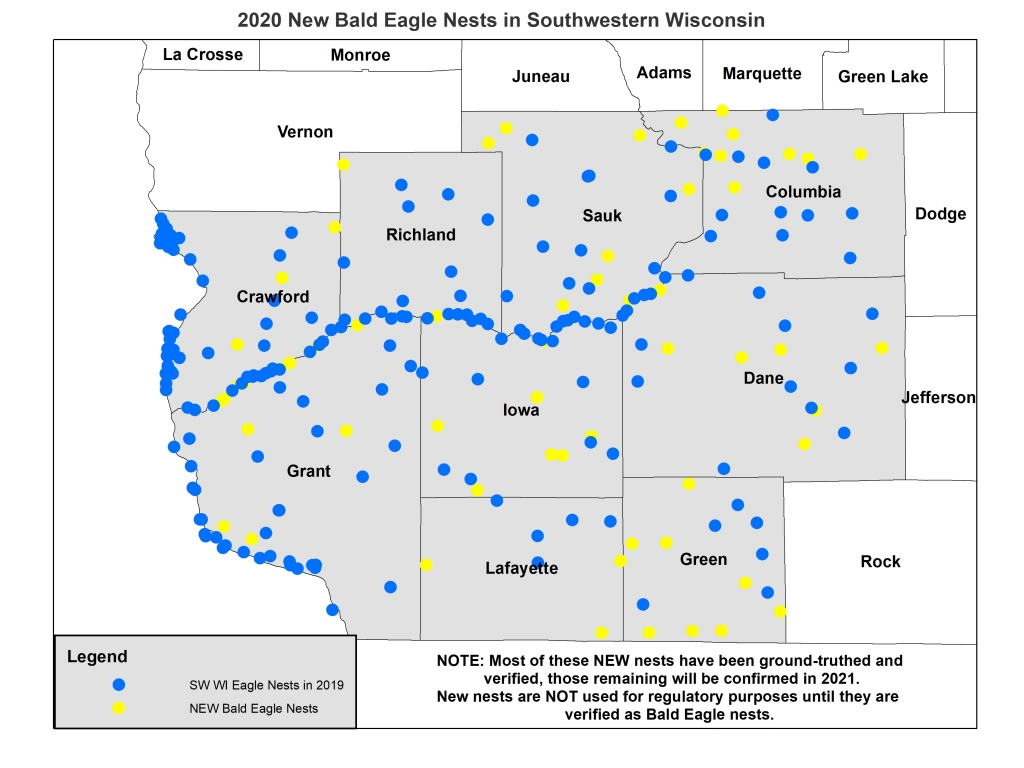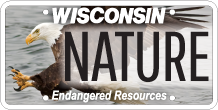Eagles in Wisconsin
Once endangered, bald eagles have made a remarkable comeback in Wisconsin. Their recovery was made possible by the national ban on the pesticide DDT, added protections under federal and state endangered species laws, river cleanups, citizen donations and monitoring by DNR’s Natural Heritage Conservation staff and partners. Wisconsin’s bald eagle license plate celebrates this success and raises money to help drive the next conservation success.
Eagle watching events
Bald eagles from northern Wisconsin, Canada, northern Michigan and Minnesota move south in winter in search of open water where they can catch fish. They typically congregate along open water areas along the Wisconsin, Mississippi and Fox rivers.
Several Wisconsin communities typically offer bald eagle-watching events in winter.
- Bald Eagle Watching Days in Sauk Prairie are held each January. Learn more: Ferry Bluff Eagle Council
- Bald Eagle Appreciation Days in Prairie du Chien are held in February. Learn more: Prairie du Chien Area Chamber of Commerce
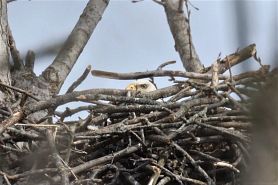
Winter bald eagle viewing locations
The best time to see bald eagles is early morning (8-11 a.m.) as they move in from their nearby roost sites to actively feed along the river through the last one to two hours before dusk as they return to their roosts. When viewing eagles, please do not venture so close that you cause them to fly off and please stay in your car when near them.
Please observe “closed area” signs during the roosting and breeding seasons to avoid disturbing eagles.
Fox River
- Try these 16 sites along the Fox River from Neenah to Kaukauna and mapped by 1000 Islands Environmental Center.
Mississippi River
- Prairie du Chien area eagle viewing area map, Prairie du Chien Chamber of Commerce
- La Crosse Eagle Watch wayside, just south of Exit 3 on Interstate 90. People are invited to pull off on the wayside and use one of the viewing scopes to get a close-up look.
- Great River Road maps show river crossings and Mississippi River locks and dams where you can pull off to watch for eagle activity in other areas, plus download their birding maps.
Wisconsin River
- Below Petenwell Dam
- In the Sauk Prairie area, use the Ferry Bluff Eagle Council’s self-guided tour to find prime viewing sites along the Lower Wisconsin State Riverway.
- State Highway 60 runs along the north side of the Lower Wisconsin River and has a few pull-offs including one just east of Boscobel.
Protections in place to keep bald eagle populations strong
Bald eagle nests are federally protected by the Bald and Golden Eagle Protection Act. The U.S. Fish and Wildlife Service's Eagle Management Program page guides landowners to avoid impacting eagle nests on their property.
Nest monitoring surveys continue to keep tabs on the population and provide landowners with the best guidance on how to avoid impacting eagle nests. DNR aerial nest surveys in 2019 found 1,684 occupied nests, up from 108 in the 1970s.
Get involved in monitoring
All Wisconsin counties now have documented active eagle nests. Citizens are playing a growing role in helping locate new nests and monitoring known nests.
- Help monitor nests from the ground in southern Wisconsin and the Fox Valley with the Madison Audubon Society's and 1000 Islands Environmental Center through the Bald Eagle Nest Watch program.
Partners keep the recovery going strong
Volunteers and organizations play an important role in bald eagles’ comeback and DNR couldn’t do it without these and other organizations and individuals.
- The Ferry Bluff Eagle Council protects habitat, raises awareness and conducts winter roost monitoring.
- Wildlife rehabilitators like the Raptor Education Group, Inc. in Antigo nurse injured and sick bald eagles back to health.
- Communities along the Wisconsin, Fox and Mississippi rivers host eagle-watching events.
- Madison Audubon Society’s citizen science program “Bald Eagle Nest Watch” uses volunteers to help track nesting activity.
Help protect Wisconsin's eagles
Celebrate eagles and help support the next conservation success by buying a bald eagle license plate. DNR's work with bald eagles is funded by license plate sales and donations to the Endangered Resources Fund.

